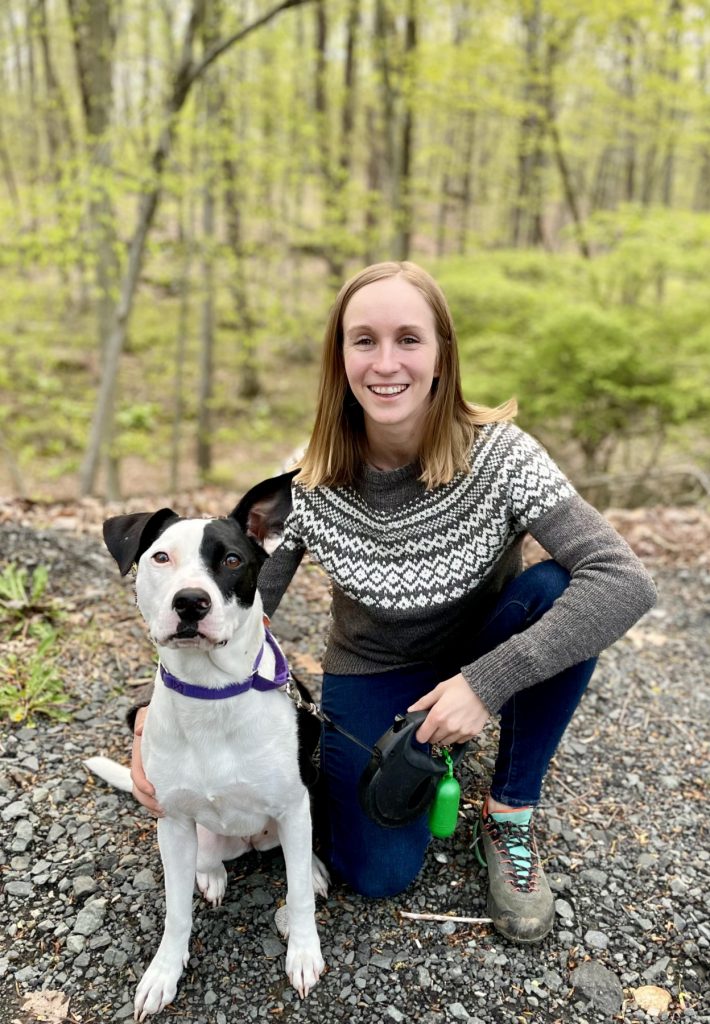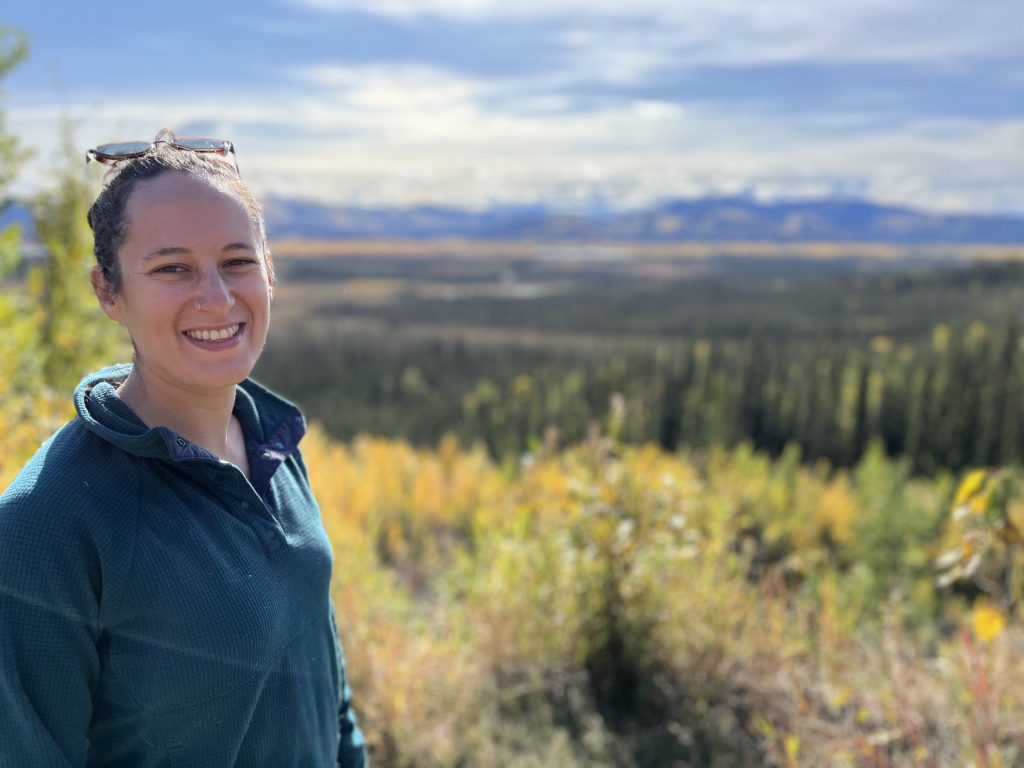Meet Save the Sound’s attorneys! Environmental advocacy takes many forms. From policy advocacy to negotiation to litigation, they use their legal backgrounds and varied approaches to help protect the Long Island Sound region. While litigation is important to the enforcement of environmental laws, we also work closely with policy- and decision-makers at every level of government to provide assistance and policy expertise. Our attorneys work in different departments to effect change in diverse ways. There are many tools in the advocate’s tool belt, as any of our experienced attorneys will tell you!

Leah Lopez Schmalz, President
What advice would you give to students pursuing a focus in environmental law?
I’d advise that a career in environmental law can come in many different packages. Knowing your passions and strengths (as well as your “opportunities for growth”) can help you craft the right fit that allows you to protect natural resources and feel personally fulfilled. Sometimes that takes the form of a litigator who fights polluters in court, sometimes it is a practical problem-solver who uses the law as leverage for on-the-ground results, other times it is a negotiator who can help companies be better and do better, or a creative type whose knowledge of the law helps develop systemic change. Environmental law is the base; be open to how you use it and not pre-formed by what you think a lawyer must be.

Denise Stranko, Executive Vice President of Programs
What legal precedent do you hope our work sets for the future?
Save the Sound’s greatest opportunity to influence precedent at the federal and state level is to ensure that the environment is considered more broadly across the board—in budgetary decisions, for example. When the state or the federal government recognizes its responsibility to the environment and to those who depend on that environment, they can incorporate that thought process into every decision they make. I think that’s where Save the Sound can make the greatest legal precedent. If our organization could continue to work at the state and federal level to bring in environmental analysis to many other environmental laws and regulations, it would be tremendous. That would be our greatest contribution.

Roger Reynolds, Senior Legal Director
What legal precedent do you hope our work sets for the future?
Every single one of our cases is founded on the basic premise that there is a public trust in our air, land, and water and these essential resources cannot be polluted or destroyed for private gain. Every legal or other battle we fight is an effort to preserve, protect, and promote that public trust when it is threatened. The precedent I want for the future is that the legal, legislative, and executive communities are educated and informed about their obligations toward the environment and there is a champion to bring to light, and take them on, when they fail.

Jessica Roberts, Staff Attorney
What advice would you give to students pursuing a focus in environmental law?
I would advise them to keep an open mind regarding the different pathways of pursuing environmental law. You could go the route of litigation, general advocacy, creative policymaking, negotiating…there are so many routes of being a lawyer and so many avenues of making change. Keep an open mind.

Dara Illowsky, Staff Attorney
What calls you to fight for our climate, lands, and water?
I believe in both the intrinsic value of nature as well as its importance to the human experience, health, and wellness. All people regardless of their backgrounds deserve access to a safe, clean, healthy environment. That includes not just safe, resilient neighborhoods in the face of climate change, but also access to enjoy wild places, whether that’s national parks or your local parks or a safe and healthy backyard. That’s the core of what calls me to this work

Peter Cooper, General Counsel
What calls you to fight for our climate, lands, and water?
For me, the significance of our organization is that it stands apart from other more single-purpose environmental advocacy entities in that it does, and should, be able to respond and participate across a broad range of environmental protection positions, depending upon what it sees as the most critical at that time. This persistent capacity to advocate for improvement in our natural, health, and justice environments—in my judgment—makes our organization such a valuable asset to the community.

Chase Lindemann, Peter B. Cooper Legal Fellow
Save the Sound fights climate change, saves endangered lands, protects the Sound and its rivers, and works with nature to restore ecosystems. What calls you to fight for our climate, lands, and water?
Protecting ordinary and extraordinary places. There are special places that should be preserved— national parks— but the everyday little joys of the environment are just as worthy of protection—the local park, whatever people find joy in. It has both aesthetic and emotional value to people, but it’s also very important to your health. You’re protecting people’s lives and the things people find enjoyment in.

David Ansel, Vice President of Water Protection
What legal precedent do you hope our work sets for the future?
Enforcing the Clean Water Act. That’s the North Star in terms of making sure that we live in a clean, healthy environment, and that Long Island Sound bays, harbors, and tributaries are clean. Part of our strategy is to not just use policy to improve the laws to protect our environment, but also to enforce the law through litigation, which is an important tool we have in our toolbag. [The Clean Water Act] says that all water should be swimmable and fishable. In many ways, that is the guiding principle.

Alicia Sullivan, Executive Vice President of Philanthropy
What calls you to fight for our climate, lands, and water?
The beauty and wonder of our region’s environment inspires me and feeds my soul. From a selfish perspective, I treasure being able to work every day to protect endangered lands and Long Island Sound’s water, where we all can enjoy nature and find peace in floating in a kayak or hiking in a forest. I firmly believe that if we don’t stand up and fight—at agency hearings, in courthouses, and in the legislatures—that we will lose some of our region’s critical natural resources. The legal power and ability to act toward solutions for our environment is a strength of Save the Sound that attracted me to join the team.

Charles Rothenberger, Climate and Energy Attorney
What calls you to fight for our climate, lands, and water?
I fight climate change not only because it is the great existential crisis of our time, but also because it is an environmental issue that each and every one of us, together, can change. It is rewarding to create and advocate for impactful policy solutions. Pairing that with science, corporate responsibility activism, and the opportunity to support individuals with the tools they need to make daily climate-friendly decisions gives us a chance for a better future.

Curt Johnson, Senior Campaign Advisor and former president
Save the Sound fights climate change, saves endangered lands, protects the Sound and its rivers, and works with nature to restore ecosystems. What calls you to fight for our climate, lands, and water?
I had the great good fortune to grow up summers in a glorified shack, in a community of blue-collar family shacks, at a magical moment when a toolmaker like my dad could afford to buy a little cottage on the Sound. It’s a river I still live on today. I have seen the water transform from extreme murky pollution where rockweed had stopped growing, the muck stunk, and big fish were a distant memory. [More recently,] I could see six feet under that water spearfishing. I caught a 35-pound striped bass. That’s what ecosystem recovery looks like. Our actions, on a collective scale, restored your waterways. Never doubt that collective action makes a difference.

Don Elliot, Board Member
What inspired you to go into environmental law?
I was inspired to go into environmental law by the writings of Barry Commoner. Commoner was a biologist, professor, and politician, and was known for his opposition to nuclear weapons testing. His writings argued that the US economy be restricted to conform to the laws of ecology and to re-construe the way we produce goods.

Celia Felsher, Board Member
Save the Sound is leading on bold climate action and helping our neighborhoods and ecosystems adapt to escalating climate threats. What most excites you about protecting and improving the land, air, and water of the Long Island Sound region?
Climate change is threatening the health, well-being, homes, and livelihoods of large segments of the world’s population. It is also endangering already fragile habitats and may lead to significant species extinctions. The bold work Save the Sound is doing to combat climate change, and to help neighborhoods and ecosystems to adapt to climate change is critical—both for us and for future generations.
